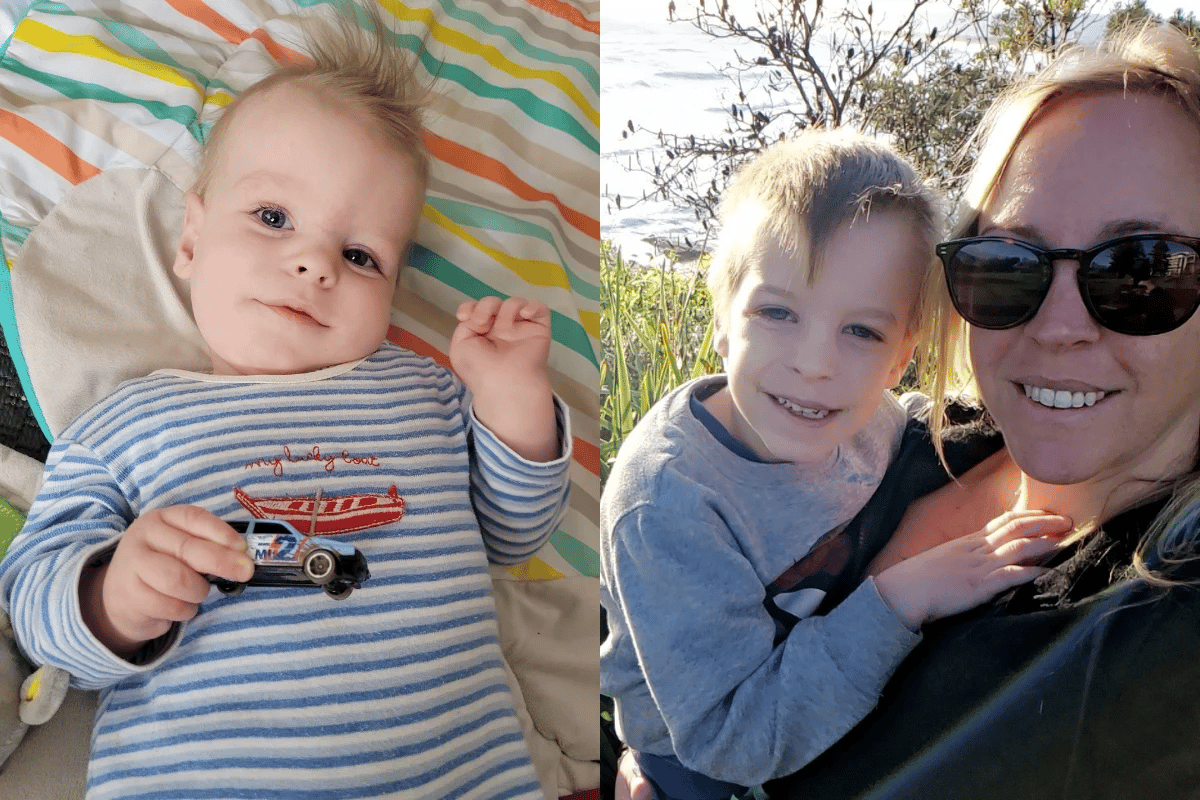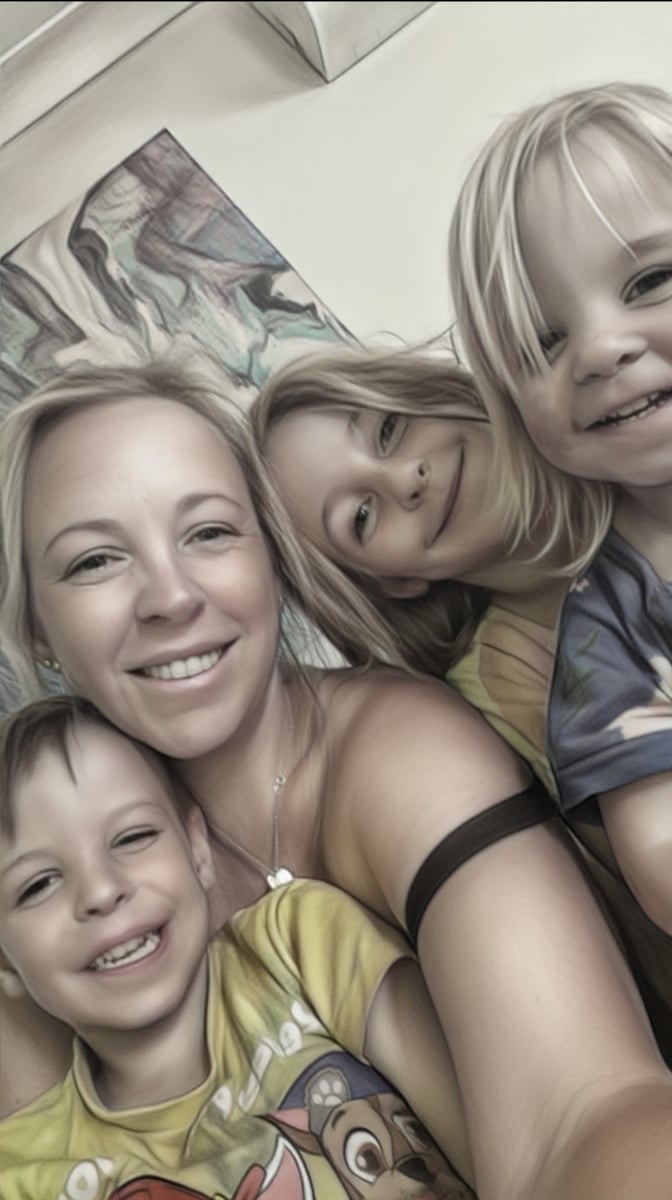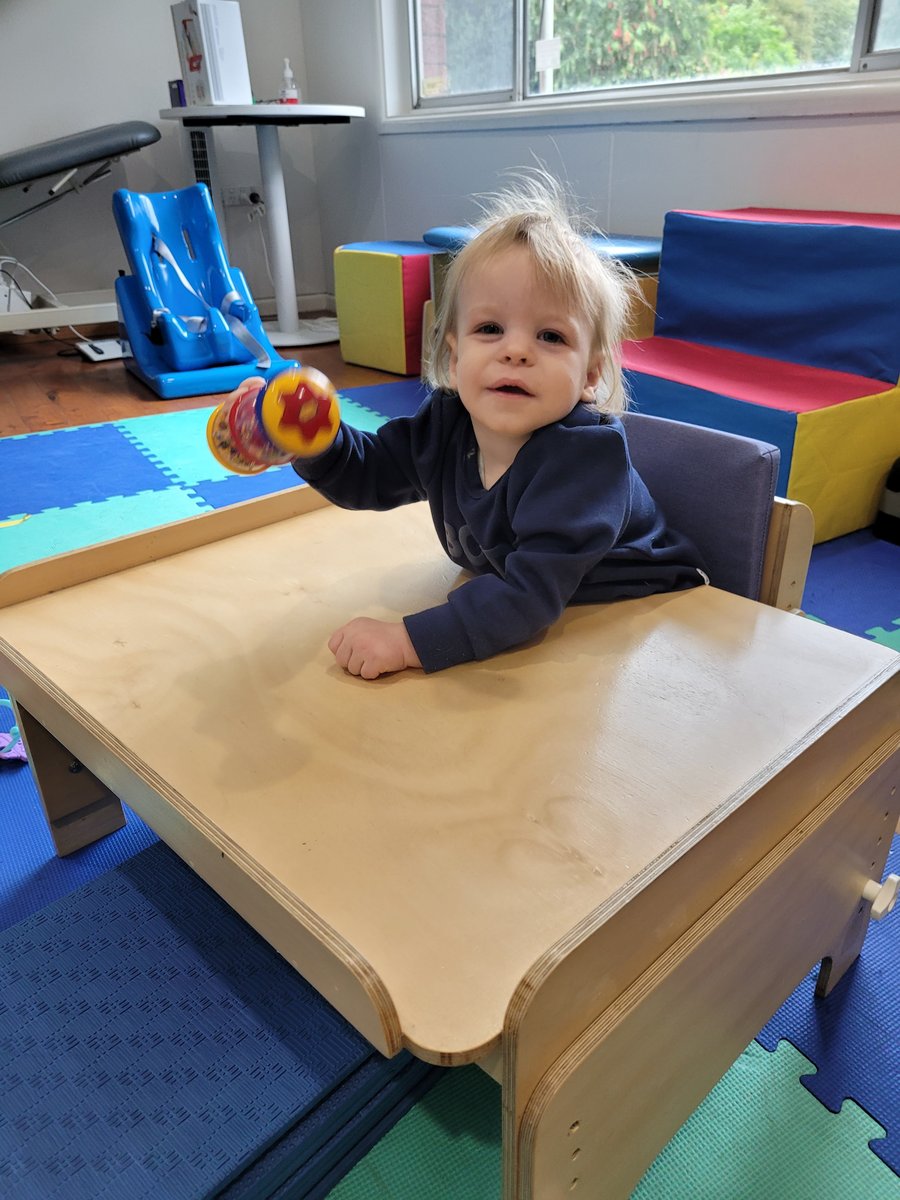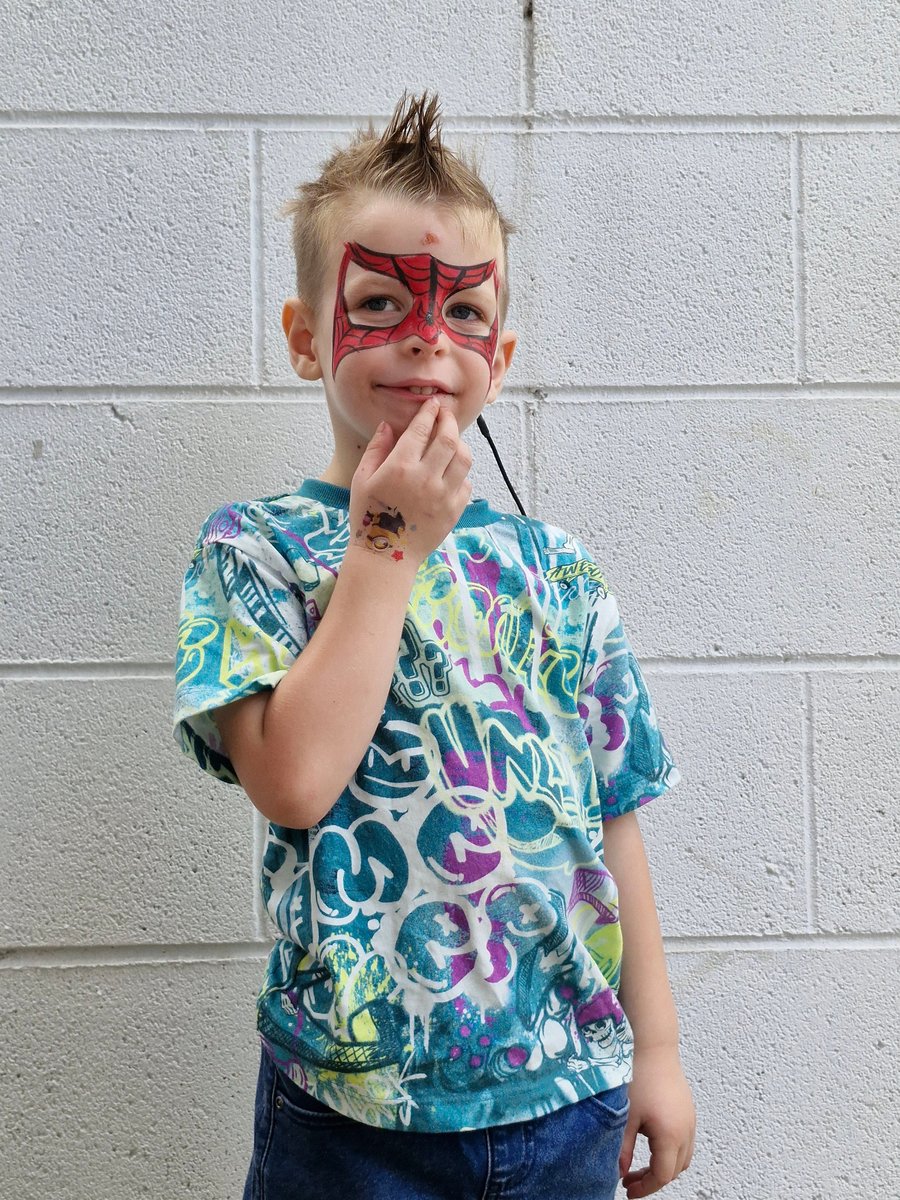
After an uncomplicated pregnancy, Sara was loving her newborn bubble with her second child, Leo. But as months passed, the expected babble and milestones never came.
At nine months old, Leo was still acting like a newborn.
"He was still just like a potato," Sara told Mamamia. "He wasn't crawling, wasn't trying to stand up, wasn't sitting, so all those typical milestones that you would see in a typical child were just severely delayed."
When Sara raised her concerns, loved ones dismissed them as "boys are a bit slower".
But she knew in her gut something was wrong.
Healthcare professionals agreed. Sara began working with specialists and Leo was diagnosed with cerebral palsy. But genetic testing and MRI scans both came back inconclusive.
Finally, almost two years after Leo was born, a newborn blood panel revealed the cause: congenital cytomegalovirus (CMV).
 Sara with Leo and his siblings. Image: Supplied.
Sara with Leo and his siblings. Image: Supplied.






























































































